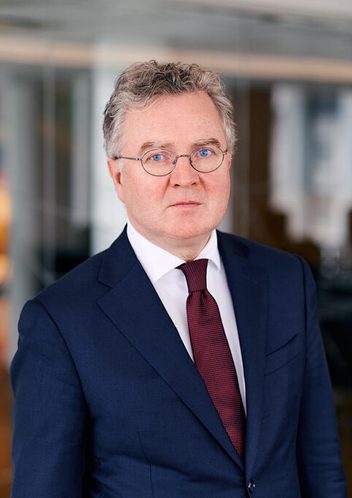
Halvard Helle
Partner
Oslo
Newsletter
by Halvard Helle and Severin S. Lyngstad
Published:
In 2020, the largest newspaper in Norway, Verdens Gang (VG), published several news stories criticizing the law firm Rogstad. To support these news stories, VG published photographs of lawyers in the law firm, which were downloaded from the law firm's website, and a photograph of one of the firm's employees which was downloaded from Facebook.
Rogstad sued VG, accusing the newspaper of stealing the photographs, and brought a claim against VG for compensation.
Sections 3 and 23 of the Norwegian Copyright Act [2018] (the "Copyright Act") provide that the reproduction of copyrighted works and photographs requires the prior consent of the rights holder.
However, there are several exceptions to this this rule, two of which were relevant in this case:
In this case, VG argued that there were no copyright infringements, as both sections 29 and 36 of the Copyright Act applied. Both the District Court and the Appellate Court agreed with VG, holding that the use of the photographs was lawful quotations under sec. 29.
Rogstad appealed the judgment to the Supreme Court, which found that VG's use of the photographs was lawful under section 36 of the Copyright Act.
The scope of section 36 of the Copyright Act is limited by the words "current events", which are based on Article 5, paragraph 3 of the EU Information Society Directive (Directive 2001/29/EC of the European Parliament and of the Council) which permits the reproduction of photographs "in connection with the reporting of current events".
VG's series of news stories, however, related to matters which took place a long time ago. The Supreme Court therefore had to decide whether the "current event"- condition in section 36 of the Copyright Act only applied to more recent events. The Supreme Court raised the question whether "current events" only relates to events where news coverage must take place so quickly that it is impossible or impractical to ask for consent before a photograph related to the event is reproduced.
The Supreme Court concluded, on the basis of case law of the European Court of Justice (i.e. C-516/17 Spiegel Online ), that there were no grounds for such an interpretation. The Supreme Court concluded that the scope of section 36 of the Copyright Act included investigative journalism, which typically takes a long time to complete and where the purpose is to uncover matters of social or political significance. After considering the special protection of freedom of expression and the press, enshrined in Article 10 of the European Convention on Human Rights, the Supreme Court concluded that:
"Especially in the case of critical journalism, requiring prior consent may place restrictions on the journalistic content and prevent the case in its full breadth from being communicated to the public within a reasonable time."
The Supreme Court judgment in the Rogstad case clarifies the scope of section 36 to clearly include long-term investigative journalistic work in cases of strong public interest. The judgment gives legal clarification and will have great practical significance for editorial assessments in the news media, where questions regarding the rights to photographs are very common. This often presents challenges, especially when the rights holder is unknown, e.g., when images are taken from social media.
As a result of this judgment, prior consent will not be required, where a matter concerns a matter of strong public interest.
VG was, for all courts, represented by the lawyers Halvard Helle and Severin Slottemo Lyngstad from Schjødt.
